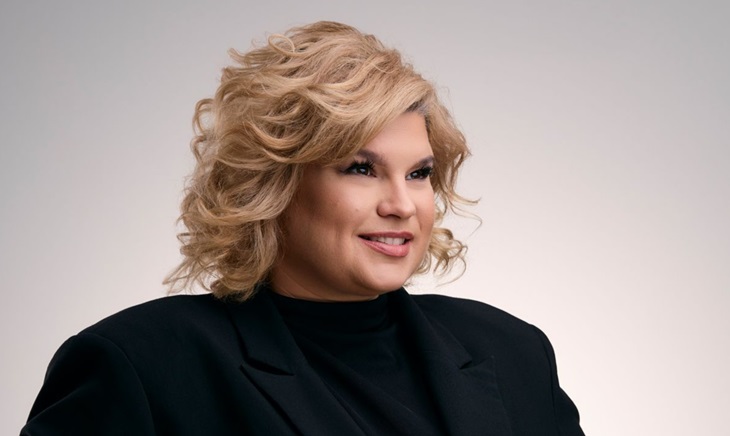“Slovaks have big goals and dreams, and since they have more opportunities today, they go after them. They take on new challenges and seek opportunities that they might not have at home,” says Oli Džupinková, author of the book They Succeeded Abroad, but We Don’t Know Them at Home.
In her book, she mapped the lives of 170 successful Slovaks. In an interview, she revealed:
- How she selected the stories for her book,
- the most challenging part of the writing process,
- the difficulties Slovaks face abroad and how they raise awareness about Slovakia,
- what it was like filming a music video with Celeste Buckingham.
What inspired you to write They Succeeded Abroad, but We Don’t Know Them at Home? Does it relate to your radio show?
I was inspired to write the book by my work at Rádio Expres, where I hosted a program about Slovaks living abroad for ten years. During that time, I conducted over 300 interviews. Later, when I took a sabbatical and travelled more, I personally visited many of them in the countries where they live and work. This project was very personal and inspiring for me, and I gradually realized that I wanted to celebrate and conclude those ten years by publishing a book. I wanted to document their stories and inspire others because their successes often remain unknown at home, even though they are incredibly successful abroad.
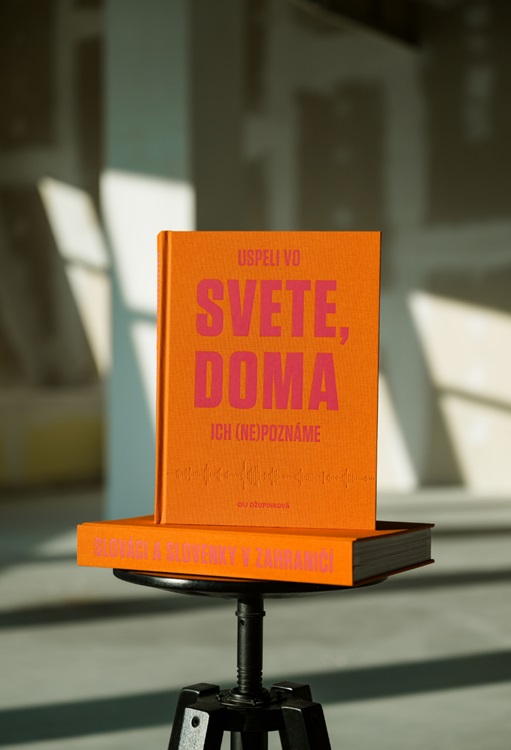
Foto: Jozef Buhaj
How did you select the stories for the book? What were your criteria?
I chose stories based on themes I decided to explore about Slovaks abroad. Over the years, I kept track of all my interviews—I had a list of countries, topics, and continued to follow these individuals. A year ago, I defined the book’s main themes and began reviewing my entire archive to select stories that fit.
The book starts with stories of people who left before 1989. It continues with chapters focused on science and research, healthcare, technology, education, business and finance, law, marketing, sports, travel, communities, photography, design, art, fashion, music, and dance. There is even a chapter on food and bartending since I love cocktails. The final chapter, Returns, features stories of people who were living abroad at the time of the interview but have since returned to Slovakia. In this chapter, I explored their reasons for returning, their feelings during their first year back, and their new lives in Slovakia.
What message do you want to convey to readers through these stories?
This book carries a message for all of us—not just Slovaks living abroad, but also for people in Slovakia. It shows what we are capable of, how brave and hardworking we are. Slovaks contribute to global projects, lead international companies, and create groundbreaking concepts. We can all be proud of them because they represent Slovakia positively worldwide. For me, this book is about courage, hard work, and success, reminding us that our country has many talented people capable of competing with the best on a global scale.
What were the most fascinating discoveries while working on the book? Was there a story that touched you the most?
Each story was unique, and every field had something new to offer. Through my work in radio, where I conducted interviews for 15 years, I learned to tune in to my guests and always gain new insights. For example, in bartending culture, I discovered things I had never known before. Talking to Slovak scientists, I learned important facts about science and research. The same applies to finance, art, travel, architecture, and ecology.Through these interviews, I expanded my own knowledge. Some facts now seem like common sense to me because I have absorbed them. I highly recommend reading the book, where everyone can find something surprising and new.
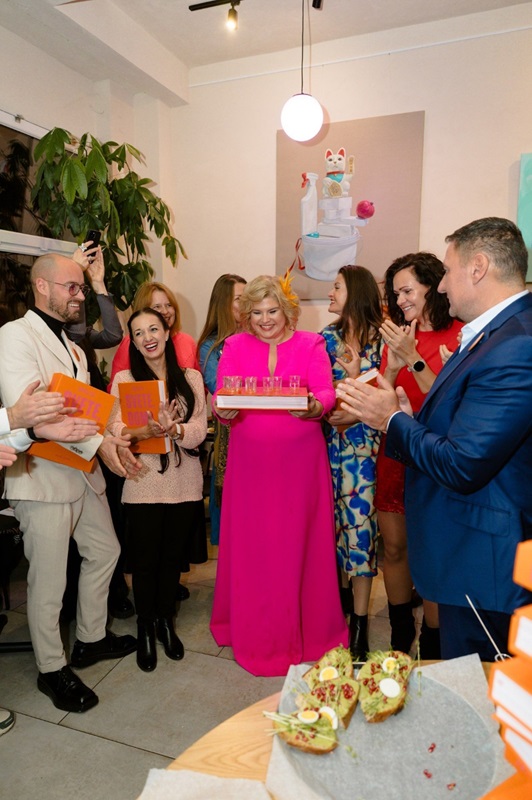
Foto: Jozef Buhaj
Do you think success abroad brings unique challenges and opportunities not available in Slovakia?
Absolutely. My radio show was born from the realization that so many Slovaks around me were living abroad and working in positions that are rare in Slovakia. Many have reached top roles in global companies or succeeded in fields that have little tradition or support in Slovakia.
This is not a bad thing, on the contrary, it is thanks to their skills and courage to travel, work in a foreign environment, and step out of their comfort zone. These challenges and new opportunities abroad have allowed them to succeed in ways that might not have been possible at home.
By working hard, gaining education, and acquiring new experiences abroad, many Slovaks have achieved remarkable success. So yes, success abroad presents unique challenges and opportunities that are not always available at home, and it also showcases the potential we can develop beyond our borders.
How do you see courage in relation to migration and seeking better opportunities?
There are many perspectives on this. Today, we have far more opportunities for studying, working, and travelling. We also have more courage to try a new life in a foreign country. In a way, migration happens not just across borders but also within Slovakia itself. I am an example. I come from Snina in eastern Slovakia and gradually moved through Prešov and Košice to Bratislava.
Slovaks have big dreams and goals, and since they have more opportunities now, they go after them. They take on new challenges and seek opportunities that might not be available at home. This takes courage—to leave your comfort zone, face new challenges, and try something different. I support everyone who does this because being courageous means stepping up to challenges, chasing your dreams, and creating your own path—whether at home or abroad. But remember, courage is not just about leaving, it’s about stepping out of your comfort zone.
How do you see the role of Slovaks abroad and their influence on the countries where they live?
I see it very positively because Slovaks abroad have a strong voice and hold important positions in many projects, jobs, and communities. Of course, it also depends on the individual—some Slovaks integrate more, make friends, and actively engage in communities, while others are more reserved.
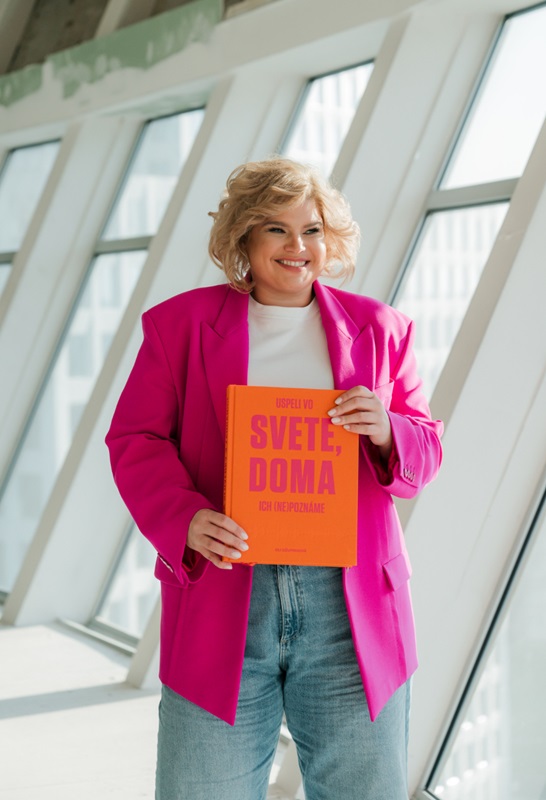
Foto: Jozef Buhaj
During my travels to places like the Philippines, Barcelona, and Australia, I noticed how well Slovaks integrate into local communities and spread awareness about Slovakia. They talk about our traditions and culture, keep up with events at home, and share them with their foreign friends. In this way, Slovaks abroad have a significant impact on the countries where they live while also representing Slovakia positively on an international level.
Before the book They Succeeded Abroad, but We Don’t Know Them at Home, you wrote Fairy Tales from the Wolf Mountains and Mom’s Rusyn Kitchen. Which book was the most enjoyable to write?
That’s a tough question because each book was a completely different project. Mom’s Rusyn Kitchen was a family project. I talked a lot with my mother, my godmother, and my grandmothers. My cousin Zuzana Sýkorová and my publishing partner Peter Šuchtár worked on it with me. It was an emotional and powerful project that brought our family together.
Fairy Tales from the Wolf Mountains was part of a project with Wolf Syrups, which has a strong local and national story. We involved children from across Slovakia, who wrote fairy tales. My role was more managerial, coordinating, and editing with language editor Katka Vaškaninová. It was a beautiful project, different from my other books.
They Succeeded Abroad, but We Don’t Know Them at Home was the most challenging book, and I say this with hindsight. The biggest challenge was the authorization process—I had to get approval from 170 people, which was very demanding. Fortunately, I had help from my friends. The book is nearly 500 pages long, weighs 2.5 kg, and reflects the immense work and energy we put into it. I am extremely proud of it and of all Slovaks who have succeeded abroad.
You recently appeared in Celeste Buckingham’s music video about female confidence. How was that experience?
It was an unforgettable experience and one of my top moments of 2024. Celeste invited me to be part of her video, and I immediately said yes. We wore baroque gowns with crinolines—I had never worn anything like that before and felt like I was in a fairy tale. But these dresses also symbolized how restrictive that era was for women.
The video promotes self-love and confidence and supports mental health awareness. It already has over 360,000 views, which is amazing. Celeste is a strong voice not only in music but also in society, and she is a role model for many young girls and women.
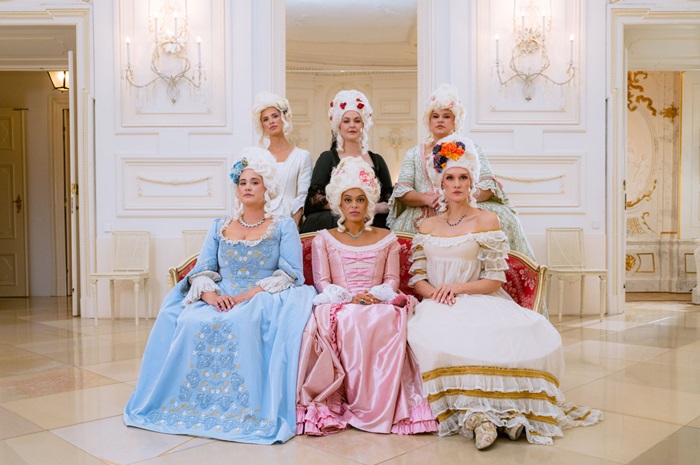
Foto: Jozef Buhaj
What are your future plans? Any new books?
I am not planning a sequel to this book. In fact, this book marks the end of my podcast and my show for Rádio Expres after ten years. I have decided to move on. I also don’t plan to publish another book on similar topics and would like to take a break from publishing for a while – I hope I can stick to it! Remember that. (Smile).
I have many plans, some of which are connected to my Rusyn projects – the Rusyn Experience Dinner and concerts of Rusyn music. I am looking forward to the Christmas concert of Dominika Novotná with the jazz formation AMC Trio at Studio L+S in Bratislava.
Regarding other projects, on February 1, 2025, I am excited about the Czech-Slovak Ball in Prague, where I will be part of the organizing team – a new and big experience for me. I have also launched the Cocktail Vibes Live podcast in collaboration with Robo Šajtlava and his bar agency, Cocktail Vibes. We are preparing a series of interviews about bar culture and cocktails with various guests and enthusiasts of this world.
In 2025, I am joining the organizing team of TEDxHumenné. I am very excited that after Bratislava and Trenčín, this global TEDx format has now reached the east of Slovakia. Humenné is currently the Slovak City of Culture, bringing people together and creating a strong community that is doing great things. I definitely recommend visiting the east. (Smile).

